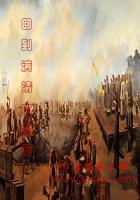All these explorers were looking for chances for fur-trading, which was at that time the chief industry of the Pacific coast.
Curiously enough, they all passed by the mouth of the Columbia without observing that there was the entrance to one of the finest rivers on the American continent.
Indeed, Captain Vancouver, a British explorer, who has left his name on the most important island of the North Pacific coast, baffled by the deceptive appearances of the two capes that guard the way to a noble stream (Cape Disappointment and Cape Deception), passed them without a thought.
But Captain Gray, sailing the good ship "Columbia," of Boston, who coasted those shores for more than two years, fully convinced that a strong current which he observed off those capes came from a river, made a determined effort; and on the 11th of May, 1792, he discovered and entered the great river that now bears the name of his ship. At last the key that was to open the mountain fastnesses of the heart of the continent had been found.
The names of the capes christened by Vancouver and re-christened by Captain Gray have disappeared from our maps, but in the words of one of the numerous editors[1] of the narrative of the exploring expedition of Lewis and Clark: "The name of the good ship `Columbia,' it is not hard to believe, will flow with the waters of the bold river as long as grass grows or water runs in the valleys of the Rocky Mountains."
[1] Dr. Archibald McVickar.
It appears that the attention of President Jefferson had been early attracted to the vast, unexplored domain which his wise foresight was finally to add to the territory of the United States. While he was living in Paris, as the representative of the United States, in 1785-89, he made the acquaintance of John Ledyard, of Connecticut, the well-known explorer, who had then in mind a scheme for the establishment of a fur-trading post on the western coast of America. Mr. Jefferson proposed to Ledyard that the most feasible route to the coveted fur-bearing lands would be through the Russian possessions and downward somewhere near to the latitude of the then unknown sources of the Missouri River, entering the United States by that route.
This scheme fell through on account of the obstacles thrown in Ledyard's way by the Russian Government. A few years later, in 1792, Jefferson, whose mind was apparently fixed on carrying out his project, proposed to the American Philosophical Society of Philadelphia that a subscription should be opened for the purpose of raising money "to engage some competent person to explore that region in the opposite direction (from the Pacific coast),--that is, by ascending the Missouri, crossing the Stony [Rocky] Mountains, and descending the nearest river to the Pacific." This was the hint from which originated the famous expedition of Lewis and Clark.
But the story-teller should not forget to mention that hardy and adventurous explorer, Jonathan Carver. This man, the son of a British officer, set out from Boston, in 1766, to explore the wilderness north of Albany and lying along the southern shore of the Great Lakes. He was absent two years and seven months, and in that time he collected a vast amount of useful and strange information, besides learning the language of the Indians among whom he lived. He conceived the bold plan of travelling up a branch of the Missouri (or "Messorie"), till, having discovered the source of the traditional "Oregon, or River of the West," on the western side of the lands that divide the continent, "he would have sailed down that river to the place where it is said to empty itself, near the Straits of Anian."
By the Straits of Anian, we are to suppose, were meant some part of Behring's Straits, separating Asia from the American continent.
Carver's fertile imagination, stimulated by what he knew of the remote Northwest, pictured that wild region where, according to a modern poet, "rolls the Oregon and hears no sound save his own dashing." But Carver died without the sight; in his later years, he said of those who should follow his lead:
"While their spirits are elated by their success, perhaps they may bestow some commendations and blessings on the person who first pointed out to them the way."















